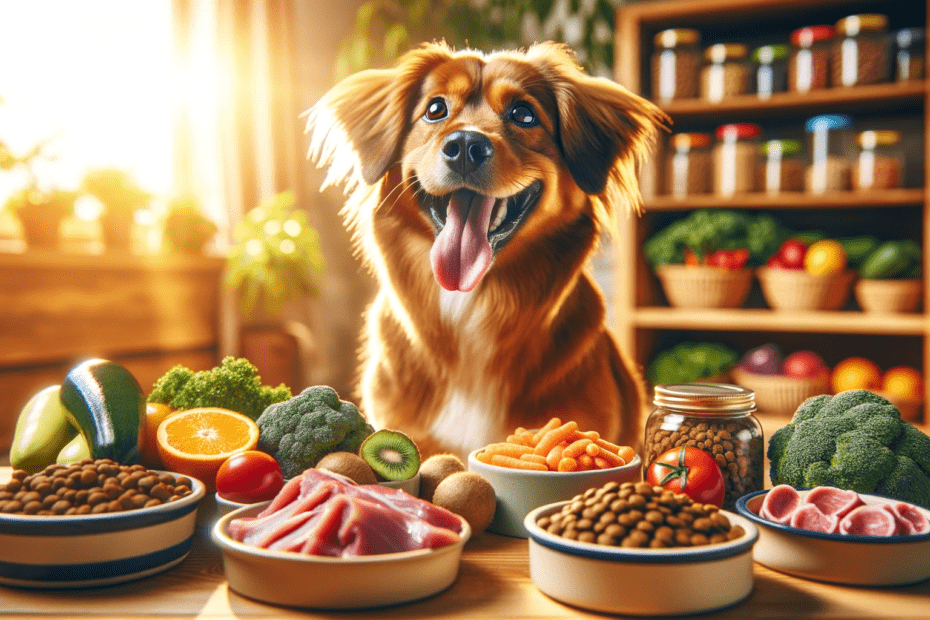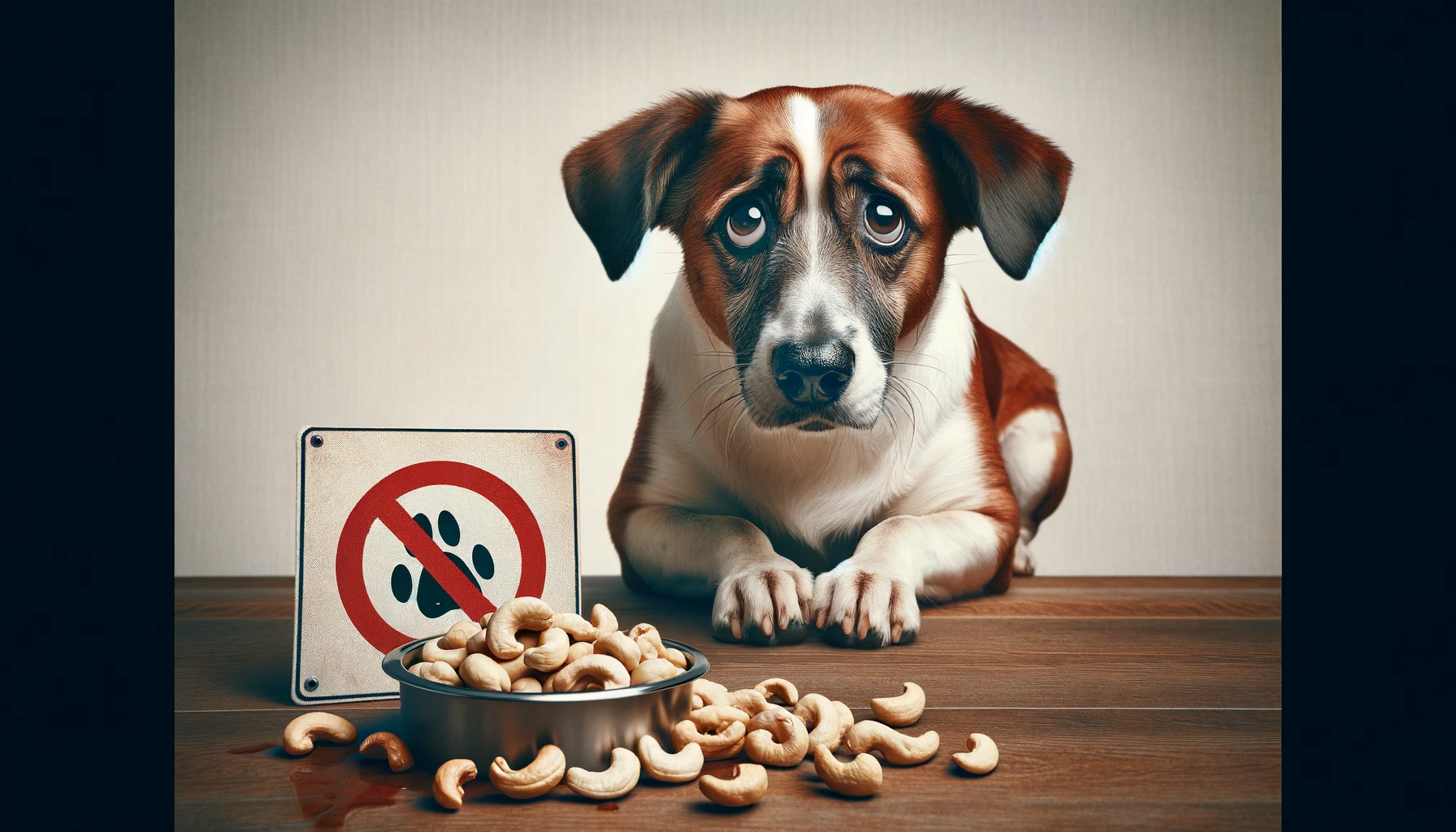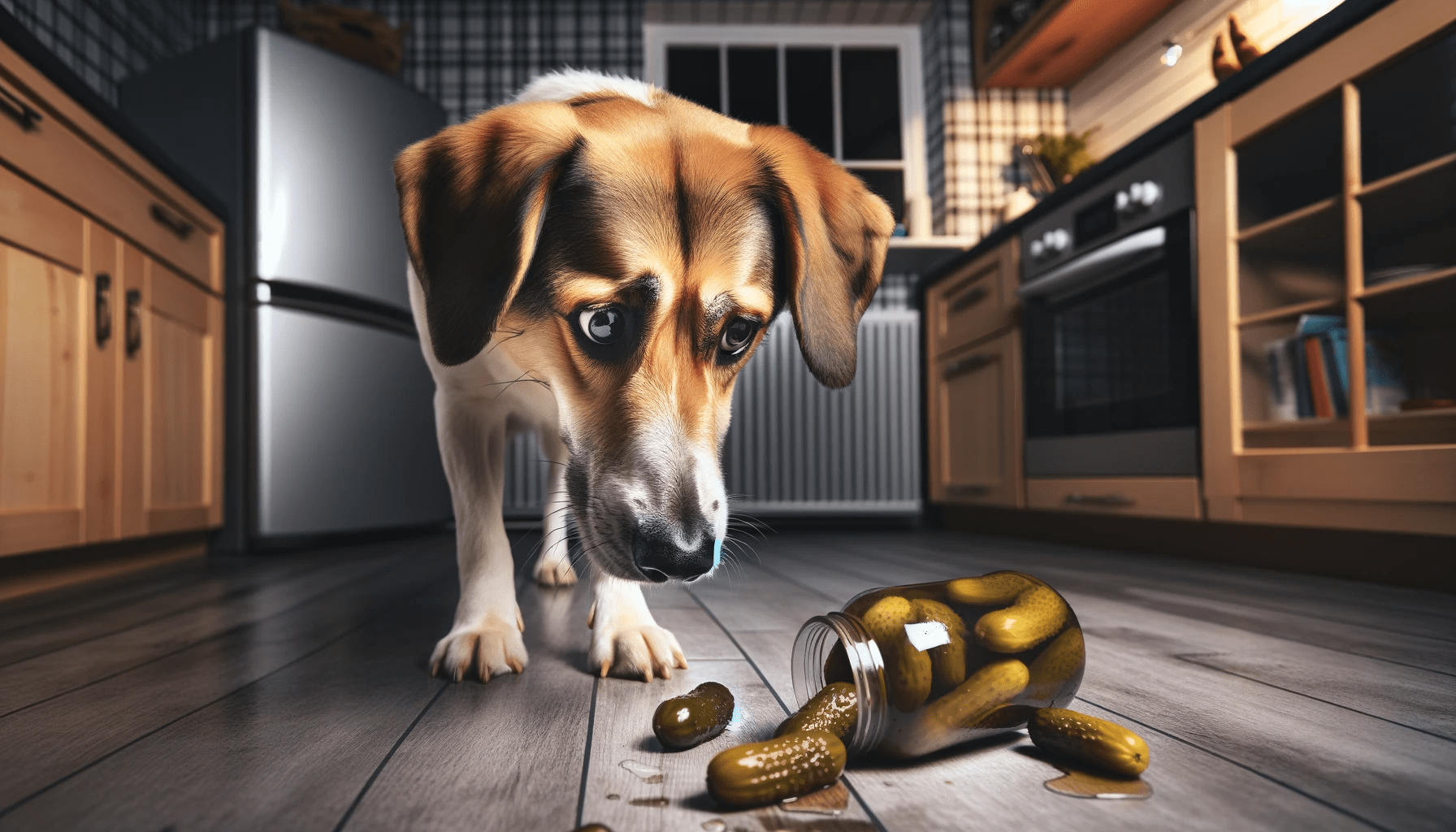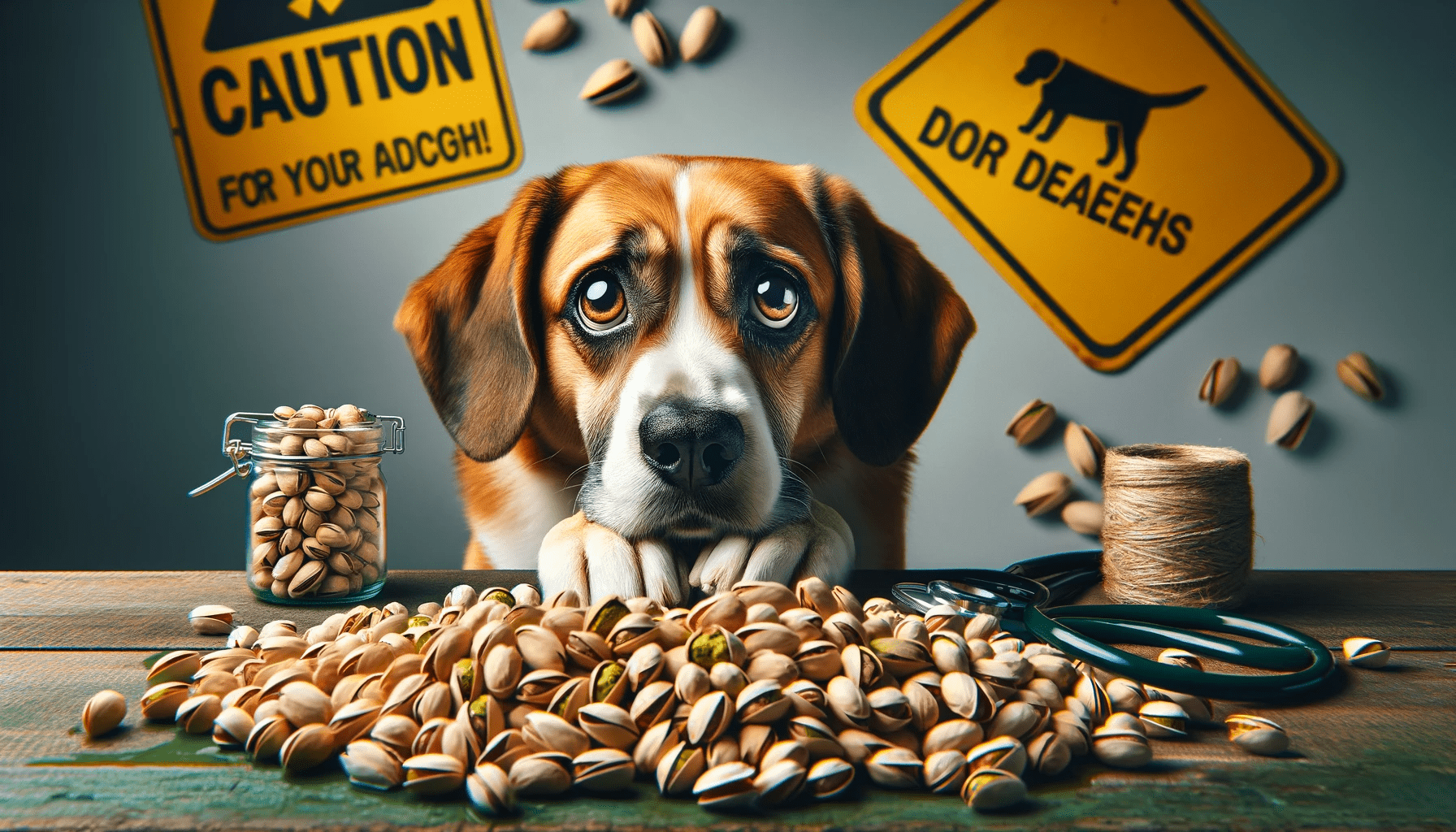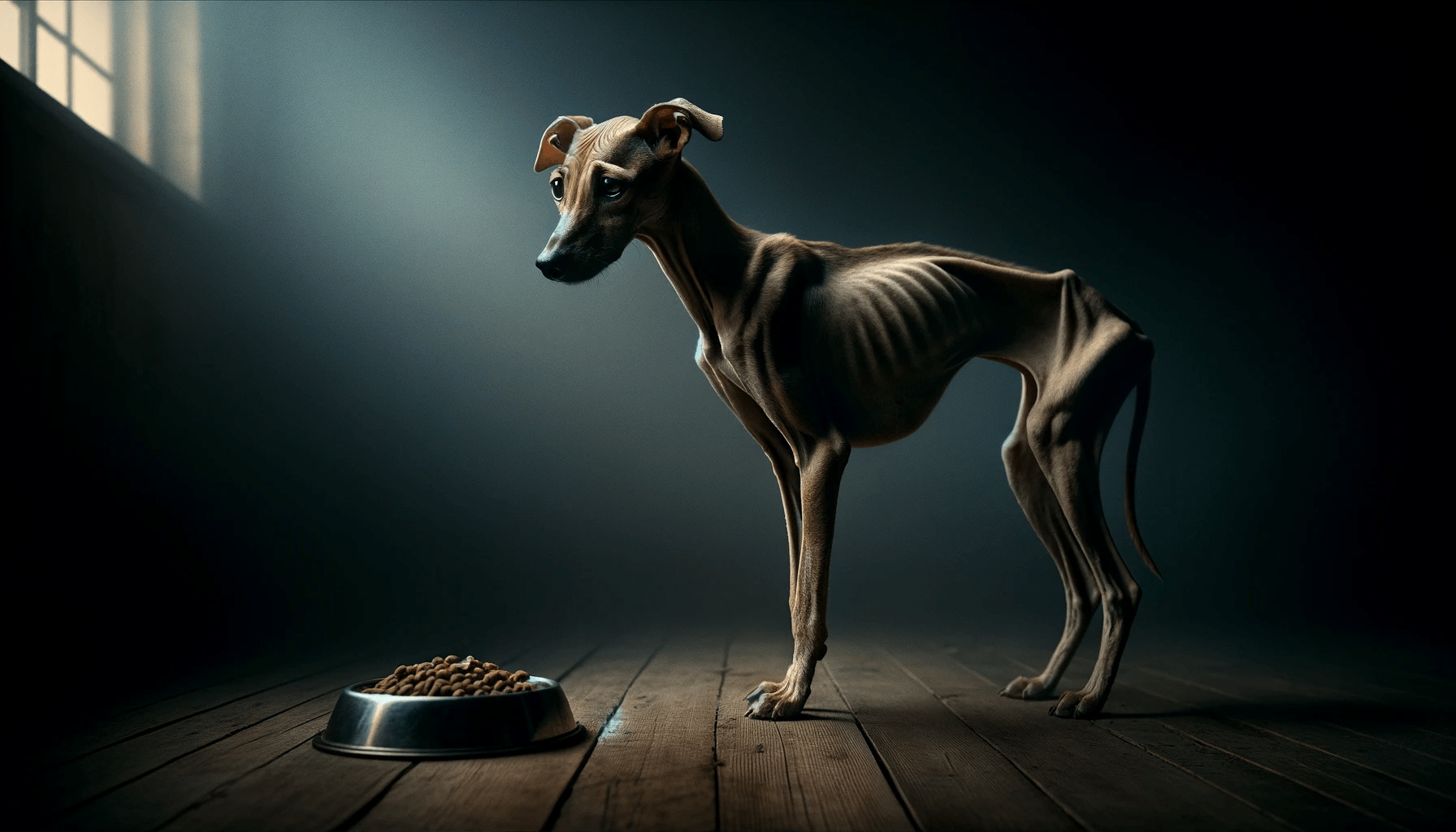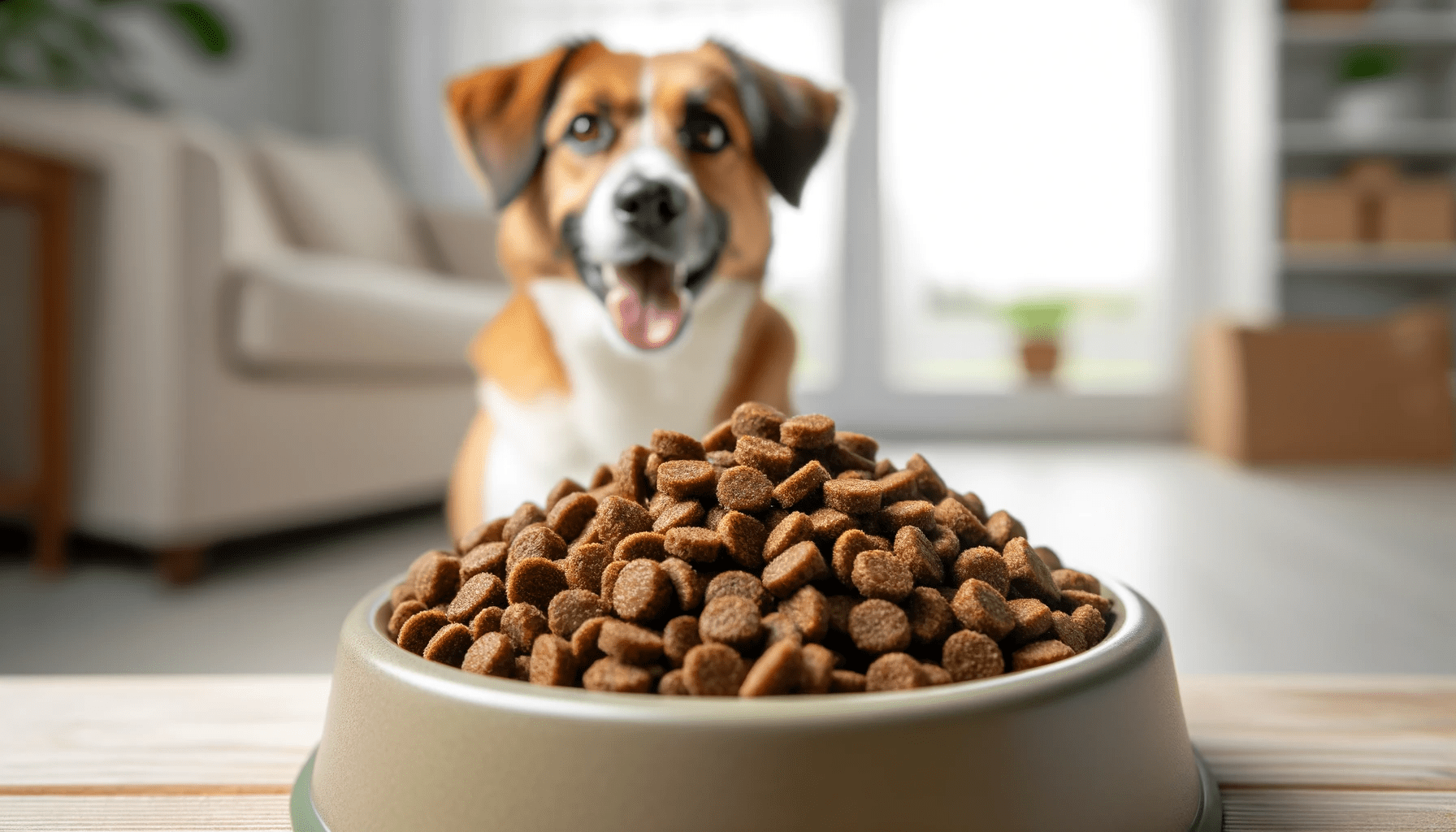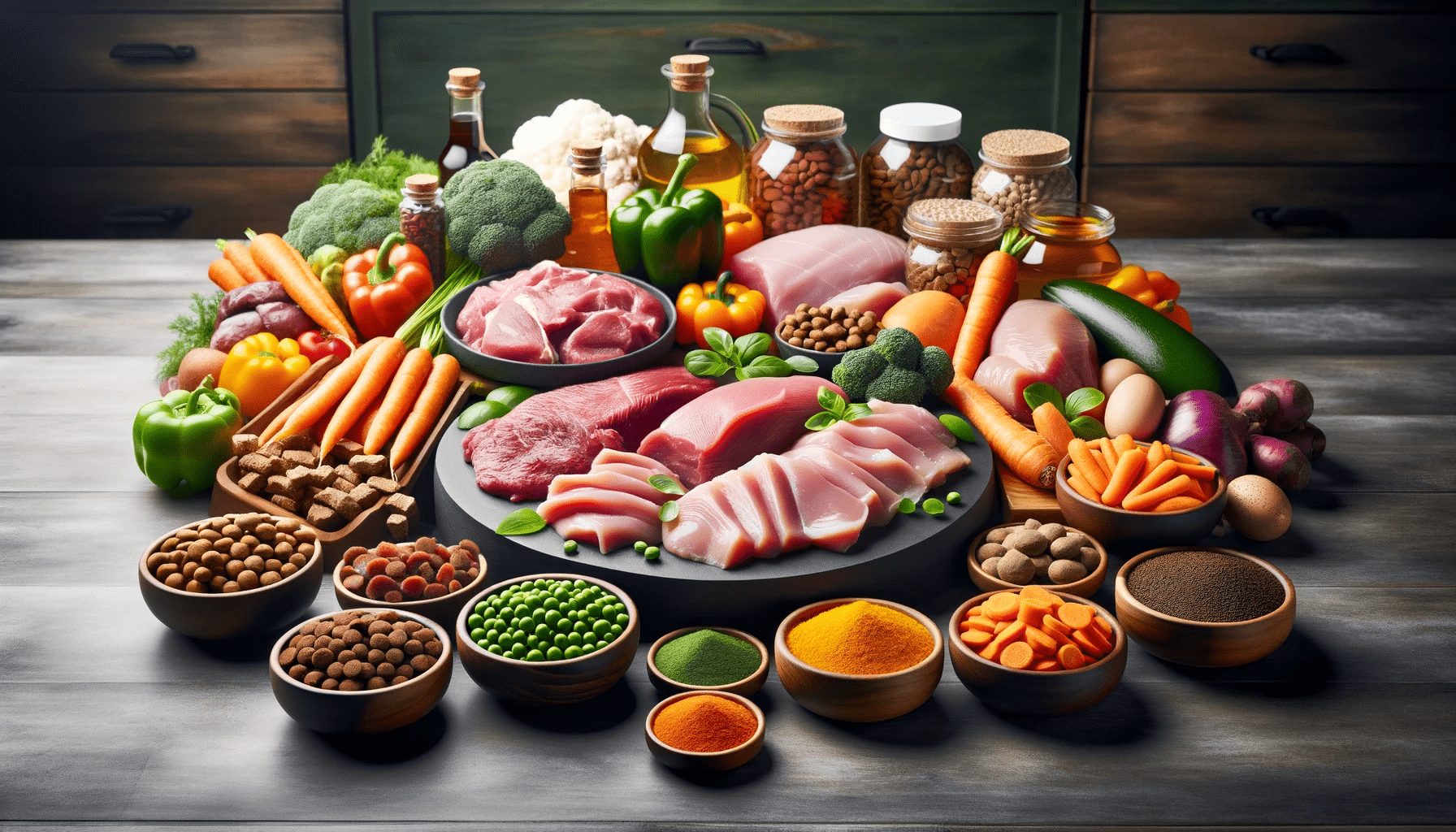Are you struggling to find reliable nutrition tips for your furry friend with a special diet? Look no further! This article will provide you with trustworthy advice to keep your dog healthy and happy.
Learn how to identify dietary restrictions, understand nutritional deficiencies, and balance macronutrients for optimal health.
Discover the best commercial dog food options and how to supplement with vet-approved homemade alternatives.
Get ready to become the ultimate nutrition guru for your dog's unique needs.
Key Takeaways
- Observe reactions to certain foods and consult with a veterinarian to identify dietary restrictions.
- Understand the importance of nutrient absorption and regularly monitor for signs of nutritional deficiencies.
- Balance macronutrients, such as protein and carbohydrates, for optimal health and consult with a veterinarian for guidance.
- When selecting commercial dog food or considering homemade options, ensure they meet dietary requirements and seek a veterinarian's advice.
Identifying Dietary Restrictions
Identify your dog's dietary restrictions by observing their reactions to certain foods and consulting with a veterinarian. Meal planning for dogs with special diets requires careful consideration of their individual needs. Start by keeping a close eye on how your dog reacts after eating certain foods. If you notice any digestive issues such as vomiting, diarrhea, or excessive gas, it could be a sign of a dietary intolerance or allergy.
It's important to consult with a veterinarian to rule out any underlying health conditions and to get professional advice on how to manage your dog's diet.
Additionally, consulting with a veterinary nutritionist can provide valuable insights into your dog's specific dietary requirements. These experts have a deep understanding of canine nutrition and can help you create a well-balanced meal plan that meets your dog's unique needs. They can also offer guidance on appropriate portion sizes, the inclusion of supplements, and any necessary dietary modifications.
Understanding Nutritional Deficiencies
To understand the nutritional deficiencies that can arise in dogs with special diets, it's important to be aware of the potential gaps in their essential nutrient intake. Dogs with special diets may be at risk of not getting all the nutrients they need due to restrictions in their food choices. Here are some key points to consider:
- The importance of nutrient absorption: Dogs with special diets may have difficulty absorbing certain nutrients, especially if they've digestive issues or underlying health conditions. This can lead to deficiencies, even if the diet seems balanced on paper. It's crucial to ensure that the nutrients aren't only present in the diet but are also being effectively absorbed by the dog's body.
- Common signs of nutritional deficiencies: Keep an eye out for any changes in your dog's physical appearance or behavior. Signs of deficiencies can include weight loss, dull coat, dry skin, muscle weakness, fatigue, and changes in appetite. If you notice any of these signs, consult with your veterinarian to determine if your dog's special diet is lacking essential nutrients.
- Regular monitoring and supplementation: Regular check-ups and blood tests can help identify any nutritional deficiencies early on. Your veterinarian may recommend specific supplements or modifications to your dog's diet to ensure they're getting all the necessary nutrients.
Balancing Macronutrients for Optimal Health
Ensure your dog's optimal health by carefully balancing the macronutrients in their special diet. Balancing protein intake and managing carbohydrate levels are essential for maintaining your dog's health and well-being.
Protein is a crucial macronutrient for dogs as it provides the building blocks for healthy muscles, skin, and coat. However, it's important to strike the right balance. Too much protein can strain your dog's kidneys, while too little can lead to muscle wasting and poor overall health. Consult with your veterinarian to determine the appropriate protein intake for your dog based on their age, size, and specific needs.
On the other hand, carbohydrates play a significant role in providing energy for your furry friend. However, it's necessary to manage carbohydrate levels, especially for dogs with special dietary requirements. Some dogs may have sensitivities or allergies to certain carbohydrates, such as grains. It's important to choose high-quality carbohydrates that are easily digestible and provide essential nutrients.
When selecting a special diet for your dog, consider their individual needs and consult with your veterinarian. They can help you determine the optimal balance of macronutrients and ensure that your dog's special diet meets their unique nutritional requirements.
Selecting Appropriate Commercial Dog Food
When selecting appropriate commercial dog food, it's important to consider the macronutrient balance and individual dietary needs of your dog, in order to support their optimal health and well-being. To help you make an informed choice, here are three key factors to consider:
- Grading dog food: Look for a dog food that has been graded by a reputable organization such as the Association of American Feed Control Officials (AAFCO). These organizations set standards for pet food manufacturers to ensure that their products meet certain nutritional requirements. A higher grade indicates that the food has undergone more rigorous testing and is more likely to provide a balanced diet for your dog.
- Individual dietary needs: Every dog is different, and their nutritional needs can vary based on factors such as age, breed, activity level, and any underlying health conditions. Consult with your veterinarian to determine the specific dietary requirements of your dog. They can recommend a commercial dog food that's tailored to meet your dog's individual needs.
- Raw food options: Some dog owners choose to feed their pets a raw food diet. While this can be a controversial topic, it's important to note that raw diets require careful planning to ensure they provide all the necessary nutrients. If you're considering a raw food diet for your dog, consult with your veterinarian to ensure that it's safe and appropriate for your pet.
Supplementing With Vet-Approved Homemade Options
Consider incorporating vet-approved homemade options as supplements to your dog's diet. While commercial dog food can provide the necessary nutrients for your furry friend, adding homemade recipes recommended by your veterinarian can offer additional benefits. Vet-approved homemade options can be a great way to ensure your dog receives a balanced and nutritious diet tailored to their specific needs.
When it comes to homemade recipes, it's essential to consult with your vet to ensure they meet your dog's dietary requirements. Every dog is unique, and their nutritional needs may vary based on age, breed, size, and any existing health conditions. Your vet can provide personalized recommendations and guide you in creating the right homemade options for your dog.
Vet recommendations play a crucial role in supplementing your dog's diet with homemade options. They can suggest ingredients that are safe and beneficial for your dog's health. For example, adding cooked lean meats like chicken or turkey can provide high-quality protein. Vegetables such as carrots and green beans can offer essential vitamins and minerals. Additionally, incorporating healthy fats like fish oil can support their skin and coat health.
Frequently Asked Questions
Can Dogs With Special Diets Eat Treats or Snacks?
Yes, dogs with special diets can enjoy treats and snacks! However, it's important to choose dog treat alternatives that are suitable for their specific dietary needs. Consider homemade snack recipes using vet-approved ingredients for a healthier option.
How Can I Tell if My Dog Has a Nutritional Deficiency?
If your dog has a nutritional deficiency, they may show signs such as lethargy, poor coat quality, and weight loss. It's crucial to provide a balanced diet for dogs with special needs to ensure their overall health and well-being.
Are There Any Specific Dog Food Brands That Are Recommended for Dogs With Special Diets?
There are several dog food brands recommended for dogs with special diets. You can try brands like XYZ and ABC, which offer alternative options for dogs with specific dietary needs.
Can I Switch My Dog's Diet From Commercial Dog Food to Homemade Options Without Consulting a Vet?
You should consult a vet before switching your dog's diet from commercial dog food to homemade options. Without professional guidance, you may risk nutritional deficiencies in your dog's diet.
What Should I Do if My Dog Refuses to Eat the Prescribed Commercial Dog Food for Their Special Diet?
If your dog refuses to eat the prescribed commercial dog food for their special diet, there are alternative options you can try, such as consulting with a vet for possible homemade diet risks.
Conclusion
In conclusion, ensuring that dogs with special diets receive the necessary nutrition is crucial for their overall health and well-being.
By identifying their dietary restrictions, understanding nutritional deficiencies, and balancing macronutrients, owners can make informed choices about commercial dog food and supplement with vet-approved homemade options when needed.
With proper care and attention to their unique dietary needs, these dogs can thrive and lead happy, healthy lives.
